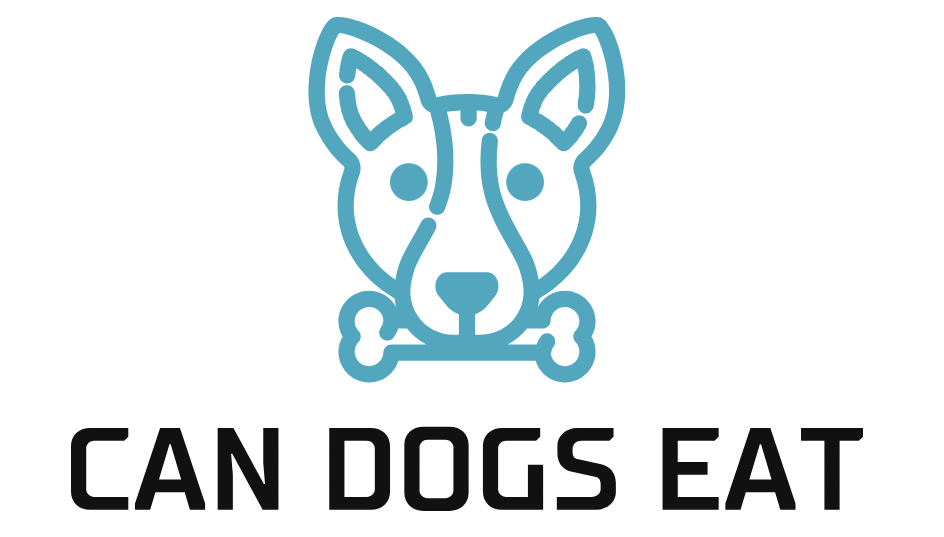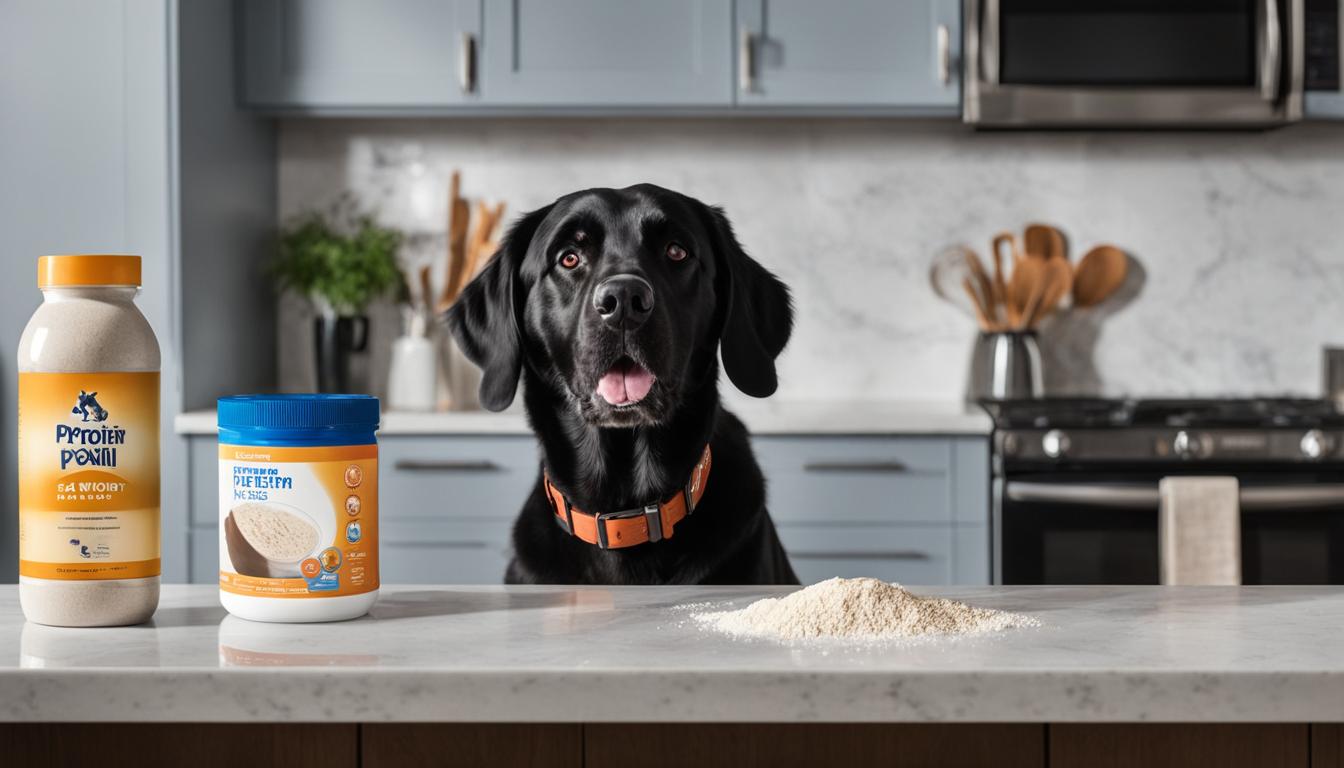Can Dogs Drink Pineapple Juice? – A Curious Inquiry Explained.
Many dog owners wonder, “Can dogs drink pineapple juice?” Here’s everything you need to know about feeding this tropical treat to your four-legged friend.

Key Takeaways:
- YES, Pineapple juice can be given to dogs in small amounts and sparingly.
- Fresh pineapple is a better choice than canned pineapple due to its lower sugar content.
- Portion control is important as pineapple contains natural sugar and fiber.
- Dogs should only consume raw, peeled pineapple flesh and avoid the core or spiny skin.
- Consult with a veterinarian for the appropriate serving size of pineapple for your dog.
Is Pineapple Juice Safe for Dogs to Drink?
When it comes to pineapple juice, many dog owners wonder if it is safe to offer their canine companions this tropical drink. While pineapple itself is generally safe for dogs to consume in small amounts, pineapple juice should be given to dogs with caution.
Pineapple juice contains a higher concentration of sugar compared to fresh pineapple, which can be detrimental to dogs, especially those with diabetes or weight issues. It is important to note that canned pineapple and other canned fruits often contain sugary syrup, so it is best to opt for fresh pineapple instead.
When feeding pineapple to dogs, it is essential to only offer them raw, peeled pineapple flesh. The core and spiny skin of pineapples can pose choking hazards and should be avoided. Additionally, portion control is crucial as pineapple is naturally high in sugar and fiber. Feeding too much pineapple can lead to digestive issues such as upset stomach or diarrhea.
| Fruit | Serving Size |
|---|---|
| Pineapple (fresh) | Small chunks or slices, as a treat |
| Watermelon | Remove seeds and rind, small amounts as a treat |
| Cantaloupe | Remove seeds and rind, small amounts as a treat |
| Apples | Remove seeds and core, small amounts as a treat |
| Bananas | Small slices, in moderation |
It is always advisable to consult with a veterinarian before introducing any new food into your dog’s diet, including pineapple. They can provide guidance on the appropriate serving size and frequency based on your dog’s individual needs and health condition.
Remember, pineapples are not the only fruit that can be safely enjoyed by dogs. Other fruits such as watermelon, cantaloupe, apples, bananas (in small amounts), blueberries, cranberries, strawberries, mango, peaches, oranges (in moderation), pumpkin, and cucumbers can also make healthy treats for your furry friends.

Conclusion:
While dogs can consume pineapple in small amounts, pineapple juice should be given sparingly due to its higher sugar concentration. Fresh pineapple is a safer choice than canned pineapple, and it is important to feed dogs only the raw, peeled flesh of the fruit. Portion control is crucial, and it is best to consult with a veterinarian to determine the appropriate serving size for your dog. Remember to offer variety in your dog’s diet and consider other safe fruits such as watermelon, cantaloupe, apples, and bananas. Enjoy these fruity treats with your furry friends in moderation!
The Benefits of Pineapple for Dogs
Pineapple holds a range of nutritional benefits for dogs, making it a delicious and potentially nutritious addition to their diet. This tropical fruit is packed with vitamins and minerals, including vitamin C, vitamin B6, thiamin, riboflavin, folate, and manganese. These nutrients can support a dog’s immune system, promote healthy skin and coat, aid in digestion, and contribute to overall well-being.
The high concentration of vitamin C in pineapple can boost a dog’s immune system, helping to protect against illness and infection. Additionally, pineapple contains bromelain, an enzyme that can aid in digestion and reduce inflammation. This enzyme has also been found to have potential anti-cancer properties, although further research is needed to fully understand its effects in dogs.
When feeding pineapple to your dog, it’s important to do so in moderation. Due to its natural sugar content, excessive consumption of pineapple can lead to digestive issues such as diarrhea or upset stomach. It’s best to start with small amounts and monitor your dog’s reaction. If you have any concerns or questions about serving size or frequency, consult with your veterinarian.


Table: Nutritional Content of Pineapple (per 100g serving)
| Nutrient | Amount |
|---|---|
| Calories | 50 |
| Carbohydrates | 13g |
| Sugar | 9g |
| Fiber | 1.4g |
| Vitamin C | 48.7mg |
| Vitamin B6 | 0.1mg |
| Thiamin | 0.1mg |
| Riboflavin | 0.1mg |
| Folate | 18mcg |
| Manganese | 0.9mg |
In addition to pineapple, there are other safe fruits that dogs can enjoy as part of a balanced diet. Watermelon, cantaloupe, apples, bananas (in small amounts), blueberries, cranberries, strawberries, mango, peaches, oranges (in moderation), pumpkin, and cucumbers are all fruits that can provide various nutrients and flavors. Remember to introduce new fruits gradually and monitor your dog for any adverse reactions.
Guidelines for Feeding Dogs Pineapple
If you’re considering adding pineapple to your dog’s diet, it’s essential to follow some guidelines to ensure their safety and well-being. Here are some important points to keep in mind when feeding your dog fresh pineapple:
1. Start with small amounts:
Introduce pineapple gradually to your dog’s diet. Start with small pieces or a teaspoon of fresh pineapple and observe how your dog reacts. Some dogs may have sensitive stomachs, so it’s important to monitor their digestion and adjust the serving size accordingly.
2. Serve fresh pineapple:
When offering pineapple to your dog, always use fresh pineapple. Canned pineapple often contains added sugar and preservatives, which can be harmful to your dog’s health. Opt for raw, peeled pineapple flesh and avoid the core or spiny skin, as they can be choking hazards.
3. Practice portion control:
Pineapple is naturally sweet and contains a significant amount of sugar and fiber. While it offers nutritional benefits, excessive consumption can lead to digestive issues in dogs. It’s best to provide pineapple to your dog in moderation and consult with your veterinarian to determine the appropriate serving size based on your dog’s size, breed, and overall health.
4. Consider other safe fruits:
Pineapple is not the only fruit that can be safely enjoyed by dogs. There are several other fruits that can be a nutritious addition to your dog’s diet, such as watermelon, cantaloupe, apples, bananas (in small amounts), blueberries, cranberries, strawberries, mango, peaches, oranges (in moderation), pumpkin, and cucumbers. Remember to remove any seeds, cores, or peels that may pose a choking hazard.
By following these guidelines, you can safely incorporate pineapple into your dog’s diet as a healthy and tasty treat. Remember to always consult with your veterinarian before making any significant changes to your dog’s diet or introducing new foods.

| Fruit | Can Dogs Eat? |
|---|---|
| Watermelon | Yes, in moderation and without seeds |
| Cantaloupe | Yes, in moderation and without seeds |
| Apples | Yes, in moderation and without seeds or cores |
| Bananas | Yes, in small amounts and peeled |
| Blueberries | Yes |
| Cranberries | Yes, in moderation and unsweetened |
| Strawberries | Yes, in moderation and without stems or leaves |
| Mango | Yes, in moderation and without pit |
| Peaches | Yes, in moderation and without pit |
| Oranges | Yes, in moderation and without seeds or peel |
| Pumpkin | Yes, cooked and without added spices or sweeteners |
| Cucumbers | Yes, in moderation and without seeds or peel |
Potential Risks and Considerations
While pineapple can be a great addition to a dog’s diet, there are some potential risks and considerations to keep in mind to ensure their well-being.
Dogs can have pineapple, but it is important to remember that moderation is key. Too much pineapple or pineapple juice can cause digestive issues, such as an upset stomach. Dogs may also experience diarrhea or loose stools if they consume excessive amounts of pineapple. Therefore, it is recommended to introduce pineapple gradually and monitor your dog’s reaction to it.
Another consideration is the use of dried pineapple as a dog treat. While dried fruits can be a healthy snack for humans, they are not recommended for dogs. Dried pineapple has a higher sugar content than fresh pineapple, making it less suitable for dogs. It is best to stick to fresh, raw pineapple as a treat option.
To ensure the safety of your pet, always remove the core and spiny skin of the pineapple before feeding it to your dog. These parts can be choking hazards and should be avoided. Additionally, it is crucial to consult with a veterinarian before adding pineapple or any new food to your dog’s diet to determine the appropriate serving size based on their size, age, and overall health.

| Summary of Risks and Considerations: |
|---|
| • Too much pineapple can cause digestive issues. |
| • Dried pineapple has a higher sugar content and should be avoided. |
| • Remove the core and spiny skin of the pineapple before feeding it to your dog to prevent choking hazards. |
| • Consult with a veterinarian for appropriate serving sizes and to ensure pineapple is suitable for your dog’s specific needs. |
Other Safe Fruits for Dogs
In addition to pineapple, there are several other fruits that dogs can enjoy as healthy and tasty treats. These fruits provide a variety of vitamins, minerals, and antioxidants that can benefit your furry friend’s overall health. When feeding your dog fruits, it’s important to remove any seeds, pits, or tough skins that could pose a choking hazard. Let’s take a look at some of the popular fruits that are safe for dogs to eat:
- Watermelon: This hydrating fruit is a great option for dogs, as it is low in calories and high in vitamins A and C.
- Cantaloupe: Rich in nutrients like vitamin A and beta-carotene, cantaloupe can be a refreshing snack for dogs.
- Apples: Apples are a good source of fiber and vitamin C. Remember to remove the seeds and core before serving.
- Bananas: While high in sugar, bananas can be given to dogs in small amounts as an occasional treat. They are a great source of potassium and vitamin B6.
- Blueberries: Packed with antioxidants, blueberries can provide a immune boost for your pup. They are also low in calories and high in fiber.
- Cranberries: These tart berries are rich in vitamins C and E, and may help support urinary tract health in dogs.
- Strawberries: Full of antioxidants, strawberries make a delicious and nutritious treat for dogs. Just make sure to wash them thoroughly and remove the stems.
- Mango: This tropical fruit is a good source of vitamins A, C, and E. However, it should be served in moderation due to its natural sugar content.
- Peaches: Peaches are a great source of vitamins A and C, but be sure to remove the pit as it can be toxic to dogs.
- Oranges: Oranges are safe for dogs to eat, but in moderation. The high acidity of oranges can upset their stomachs if consumed in large quantities.
- Pumpkin: Rich in fiber and beta-carotene, pumpkin is a beneficial fruit for dogs. It can aid in digestion and promote a healthy coat.
- Cucumbers: Cucumbers are not only low in calories, but they also provide hydration and can help freshen your dog’s breath.

Remember to introduce new fruits gradually into your dog’s diet and monitor for any signs of allergies or digestive issues. Always consult with your veterinarian to ensure the fruits you choose are suitable for your dog’s specific needs. Treats should only make up a small portion of your dog’s overall diet, with the majority consisting of a balanced and nutritious dog food.
Portion Control and Moderation
As with any food, it’s crucial to exercise portion control and moderation when it comes to feeding your dog pineapple. While pineapple can be a healthy and tasty treat for your furry friend, it’s important to remember that it contains natural sugars and fiber that can cause digestive issues if consumed in excess.
Pineapple juice should be given to dogs in moderation, if at all. The juice has a higher concentration of sugar compared to fresh pineapple, which can be detrimental to dogs, especially those with diabetes. It is best to stick to feeding your dog fresh pineapple, as canned versions often contain sugary syrups that are not suitable for canine consumption.
To ensure your dog’s safety, always feed them raw, peeled pineapple flesh, avoiding the core and spiny skin, which can be choking hazards. Start with small amounts of pineapple to gauge your dog’s tolerance, and consult with your veterinarian to determine the appropriate serving size based on your dog’s size and health condition.
| Safe Fruits for Dogs | Benefits |
|---|---|
| Watermelon | Hydrating and high in vitamins A and C. |
| Cantaloupe | Rich in vitamins A and C, as well as fiber. |
| Apples | Provide vitamins A and C, fiber, and freshens breath. |
| Bananas (in small amounts) | Offer potassium and vitamin B6, but high in sugar. |
| Blueberries | Loaded with antioxidants and vitamins C and K. |
| Cranberries | Help prevent urinary tract infections. |
| Strawberries | Contain fiber, vitamin C, and antioxidants. |
| Mango | A good source of vitamins A, C, and E. |
| Peaches | Provide vitamins A and C, as well as fiber. |
| Oranges (in moderation) | Rich in vitamin C, but should be given sparingly due to acidity. |
| Pumpkin | Help with digestion and provide vitamins A and E. |
| Cucumbers | Offer hydration and a crunchy snack. |

Remember, dried pineapple is not recommended as a dog treat due to its higher sugar content. Stick to fresh fruits, including pineapple, as occasional treats or additions to a balanced diet. Always monitor your dog’s reaction to new foods and consult with your veterinarian for specific dietary recommendations.
Conclusion
Dogs can safely enjoy pineapple juice in moderation, but it’s important to prioritize fresh pineapple and exercise caution when feeding it to your furry friend. While pineapple can provide nutritional benefits, such as vitamin C and digestive support, it should be given in small amounts and sparingly due to its high sugar content. Fresh pineapple is preferable to canned pineapple, as canned fruits often contain sugary syrup that can be harmful to dogs.
When giving pineapple to your dog, make sure to remove the core and spiny skin, as they can present choking hazards. Additionally, it’s crucial to practice portion control, as excessive consumption of pineapple can lead to digestive issues. Starting with small amounts and consulting with a veterinarian for the appropriate serving size is recommended.
It’s also worth noting that there are other fruits that are safe for dogs to eat. Watermelon, cantaloupe, apples, bananas (in small amounts), blueberries, cranberries, strawberries, mango, peaches, oranges (in moderation), pumpkin, and cucumbers can be included in a dog’s diet. However, dried pineapple is not recommended as a dog treat due to its higher sugar content.
Remember, always prioritize your dog’s safety and well-being when introducing new foods to their diet. If you have any concerns or questions about feeding pineapple or any other fruit to your dog, it’s best to consult with a veterinarian for personalized advice.
FAQ
Can dogs drink pineapple juice?
Dogs can drink pineapple juice in small amounts and sparingly. However, it is important to be cautious due to the higher concentration of sugar in pineapple juice compared to fresh pineapple. It is best to give dogs fresh pineapple instead of canned pineapple, which often contains sugary syrup.
Is pineapple juice safe for dogs to drink?
Pineapple juice can be safe for dogs to drink, but it should be given in moderation. Fresh pineapple or unsweetened pineapple juice is recommended over canned pineapple, which may have a higher sugar content. Portion control is important, as pineapple contains natural sugar and fiber, and feeding too much can cause digestive issues.
What are the benefits of pineapple for dogs?
Pineapple can offer various nutritional benefits to dogs. It contains vitamins and minerals, such as vitamin C, that can support a dog’s immune system and overall health. Pineapple can also aid in digestion and provide dietary fiber.
What are the guidelines for feeding dogs pineapple?
When feeding dogs pineapple, it is important to provide them with fresh, raw pineapple flesh. The core and spiny skin should be removed, as they can be choking hazards. Start with small amounts of pineapple and consult with a veterinarian for the appropriate serving size for your dog.
What are the potential risks and considerations of feeding dogs pineapple?
Excessive consumption of pineapple can lead to digestive issues, such as an upset stomach. Dogs should also avoid eating dried pineapple as a treat due to its higher sugar content. It is important to practice moderation and be aware of your dog’s individual dietary needs.
Are there other safe fruits for dogs?
Yes, there are other fruits that are safe for dogs to eat. Some examples include watermelon, cantaloupe, apples, bananas (in small amounts), blueberries, cranberries, strawberries, mangoes, peaches, oranges (in moderation), pumpkin, and cucumbers.
Why is portion control and moderation important when feeding dogs pineapple?
Pineapple contains natural sugar and fiber, and feeding too much can cause digestive issues or excessive sugar intake. It is important to practice portion control and moderation to ensure your dog’s overall health and well-being.
- Can dogs drink pineapple juice? Dogs can drink pineapple juice in moderation, but it is not recommended. While pineapple itself is safe for dogs to eat, pineapple juice can be high in sugar and can cause digestive upset in some dogs. It is always best to consult with your veterinarian before introducing any new food or beverage into your dog’s diet.
- Is pineapple safe for dogs to eat? Yes, pineapple is safe for dogs to eat. It is a delicious and nutritious treat for them, as long as it is given in moderation. Pineapple is rich in vitamins and minerals, especially vitamin C, which can be beneficial for dogs. However, it is important to remove the tough core and any skin before feeding pineapple to your dog.
- Can dogs eat canned pineapple? Dogs can eat canned pineapple, but it is important to choose pineapple that is packed in water or its own juice, rather than in syrup. The syrup can be high in sugar and can cause digestive issues in dogs. It is always best to opt for fresh pineapple whenever possible, as it contains more natural enzymes and nutrients.
- How much pineapple should I feed my dog? The amount of pineapple you should feed your dog depends on their size and weight. As a general rule of thumb, you can give small dogs 1-2 chunks of fresh pineapple, while larger dogs can have 3-4 chunks. Remember to remove the tough core and any skin before feeding pineapple to your dog.
- Can pineapple juice cause an upset stomach in dogs? Yes, pineapple juice can cause an upset stomach in some dogs, especially if given in large quantities. The high sugar content in pineapple juice can lead to gastrointestinal disturbances, such as diarrhea or vomiting. If your dog experiences any digestive issues after consuming pineapple juice, it is best to discontinue feeding it to them.
- Is dried pineapple safe for dogs? Dried pineapple is not recommended for dogs. While fresh pineapple is safe and nutritious for dogs to eat, dried pineapple often contains added sugars and preservatives that can be harmful to their health. It is best to stick to fresh pineapple or offer other safe fruits as a treat for your dog.
- Can pineapple be a healthy snack for dogs? Yes, pineapple can be a healthy snack for dogs when given in moderation. It is low in calories and fat, making it a great alternative to high-calorie dog treats. Pineapple is also a good source of vitamins and minerals, such as vitamin C and manganese, which can benefit your dog’s overall health and well-being.





Leave a Reply